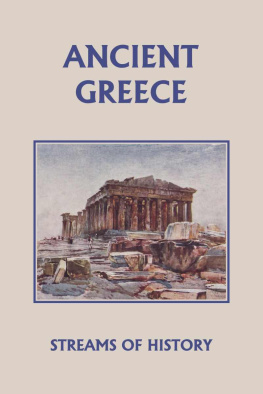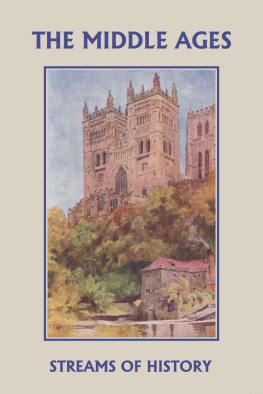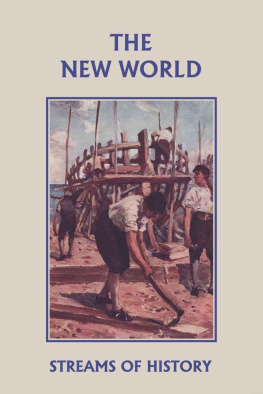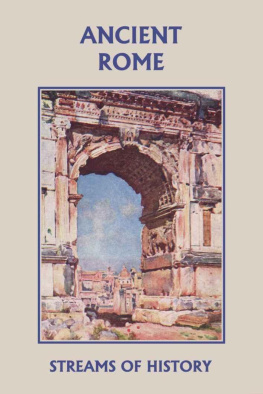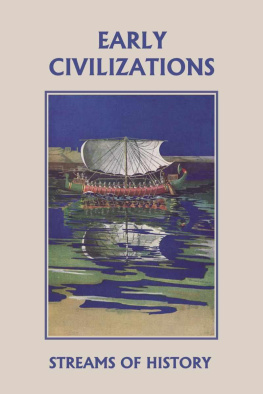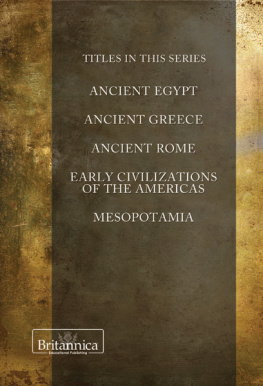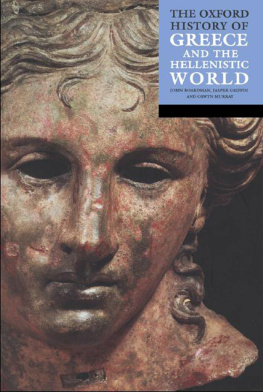Ancient Greece
by
Ellwood Wadsworth Kemp
Yesterday's Classics
Chapel Hill, North Carolina
Cover and Arrangement 2010 Yesterday's Classics, LLC
All rights reserved. No part of this book may be reproduced or retransmitted in any form or by any means without the written permission of the publisher.
This edition, first published in 2010 by Yesterday's Classics, an imprint of Yesterday's Classics, LLC, is an unabridged republication of the work originally published by Ginn and Company in 1902. This title is available in a print edition (ISBN 978-1-59915-255-4).
Yesterday's Classics, LLC
PO Box 3418
Chapel Hill, NC 27515
Yesterday's Classics
Yesterday's Classics republishes classic books for children from the golden age of children's literature, the era from 1880 to 1920. Many of our titles are offered in high-quality paperback editions, with text cast in modern easy-to-read type for today's readers. The illustrations from the original volumes are included except in those few cases where the quality of the original images is too low to make their reproduction feasible. Unless specified otherwise, color illustrations in the original volumes are rendered in black and white in our print editions.
Contents
The Geography of Greece
Earlier in our history work we studied the geography of four countries. Two of themEgypt and Babylonwere large and in rich valleys; the other twoPalestine and Phniciawere small, had rather thin soil, were cut up by hills and mountains, and had no great rivers in them.
In the two great river countries, the people could sail up the rivers, which ran from one end of the country to the other, and then float back on the current. By this means everybody in the country came to know one another somewhat, and to have much the same ways of thinking and living; and so it was easy for them also to have just one ruler, or king.
But in the small countries we studied,Palestine and Phnicia,which were so cut up by rugged mountains, and had no great rivers running through them, we found it was hard for the people to have just one person to rule them. They were much more likely to break up into small groups of people, each having its own customs and ways of life as well as its own ruler. It was so most of the time in Palestine, and almost always so in Phnicia, except that sometimes a great king, like Hiram, might rule in Tyre, and have a loose control over the other great cities in the country.
Now all these people whom we have been studying about,the Babylonians, the Egyptians, and the Jews,when they grew rich, traded what they had to sell to the Phnicians; and the Phnicians, brave people that they were, went out all over the Mediterranean and traded with all the peoples living on its borders,not only taking them wheat, barley, dyes and fruits, but also taking many beautiful and useful things, such as tools and vessels for farm and household. They also taught them the alphabet, which the Eastern countries had worked out by patient thought and labor of several thousand years.
One of the very first countries to which the Phnicians came, in going westward, was the land of the Greeks. It would take them but five or six days to go from their own country to Greece in one of the boats which we studied about in the first volume of this series, and not even so long as that for them to reach one of the many beautiful green islands which lay between their country and Greece.
Now, since we are about to study the Greek people, I want you to see something of the country in which they lived.
If we could have taken one of those triremes with a Phnician trader and gone with him on a trading trip to Greece, we would have first noticed, as we came within forty or fifty or seventy-five miles of the country, a great many islands out in the sea, looking just like stepping-stones to tempt people into the Greek coast, and to tempt the Greek people, who lived on the coast, out to trade with the people around; and as we went on up to the coast of Greece, we would see ever so many arms of the sea creeping far up into the country, making excellent landing places for boats,just the kind of places to get easily what the people had to sell, and to trade off to them the things in the boat. And it was a fact also that the many islands, scattered out in the sea right in the face of Greece, had nearly every one of them good harbors. It was also true that the arms of the sea ran far up into the mainland of Greece, making, all told, so many excellent harbors, that the peoples around the Mediterranean easily learned to trade with Greece. And the Greeks, on the other hand, became active and daring, and traveled much around the Mediterranean, trading with everybody and planting colonies wherever a favorable trading spot was found.
But another most striking thing we would have noticed as we approached the country on the boat, would have been that Greece looked like a mountain rising straight out of the blue Mediterranean. When we were far off, it would have looked like one solid mountain; but as we came nearer, say eight or ten miles away, we should have thought Greece was nothing but mountain peaks and crags.
The fact is, it was somewhat more than mountain peaks, but not so very much more. To begin with, the whole country was somewhat smaller than Indiana. It was a part of Europe, but its size on the map as compared to the rest of Europe was about the size of the little finger nail as compared to the size of the palm of the hand; and as compared with the size of Asia, it would compare about as the size of Rhode Island would with the whole of North America.
But now as to the mountains. There is almost in the center of Greece a high mountain called Par-nas'sus. It is a beautiful mountain, and persons can climb it. We will imagine ourselves on top of it, to get a look over Greece. In every direction we would look, we would see mountains; and not very regular ones, either, but often knotted and twisted ones running in all directions, and of every shape; then, again, in another direction would be a long ridge of mountains like a backbone, and running off from it ever so many spurs, like ribs. As we stood on top of Parnassus and looked around, it would seem like a vast, wild, rugged country. The cliffs and crags would be steep and barren; there would be but few roads leading over them on account of their steepness.
But as we looked down toward the feet of these rugged cliffs, we would see scattered all about among them little plains and upland hollows. The very largest of the plains would be perhaps as large as a good-sized county; then some would be as large as a township; others would be smaller, not larger than a good-sized farm; and some would be mere tiny patches in a hollow between two mountains, perhaps not larger than a good-sized field.
Now one thing that came about from having Greece cut up into so many pieces, and with such high mountain walls around them, was that hundreds of little cities, or villages, as we would often call them, grew up all over the country, each having its own customs and ways of living, and each its own form of government. You see the mountains were so high and so steep, and so few paths or roads lead from one side to the other, that the people living on the two sides could not become well acquainted with each other. They grew up not caring much for any Greek people except those living in their own little valley. When they did meet others, it would be to fight them for some little trouble or other which might arise, or simply because they were jealous of their growth. If you would imagine each one of the principal cities of your own state ruling itself entirely, and making all its laws, and fighting the other cities much of the time, it would be much like it was in Greece.

